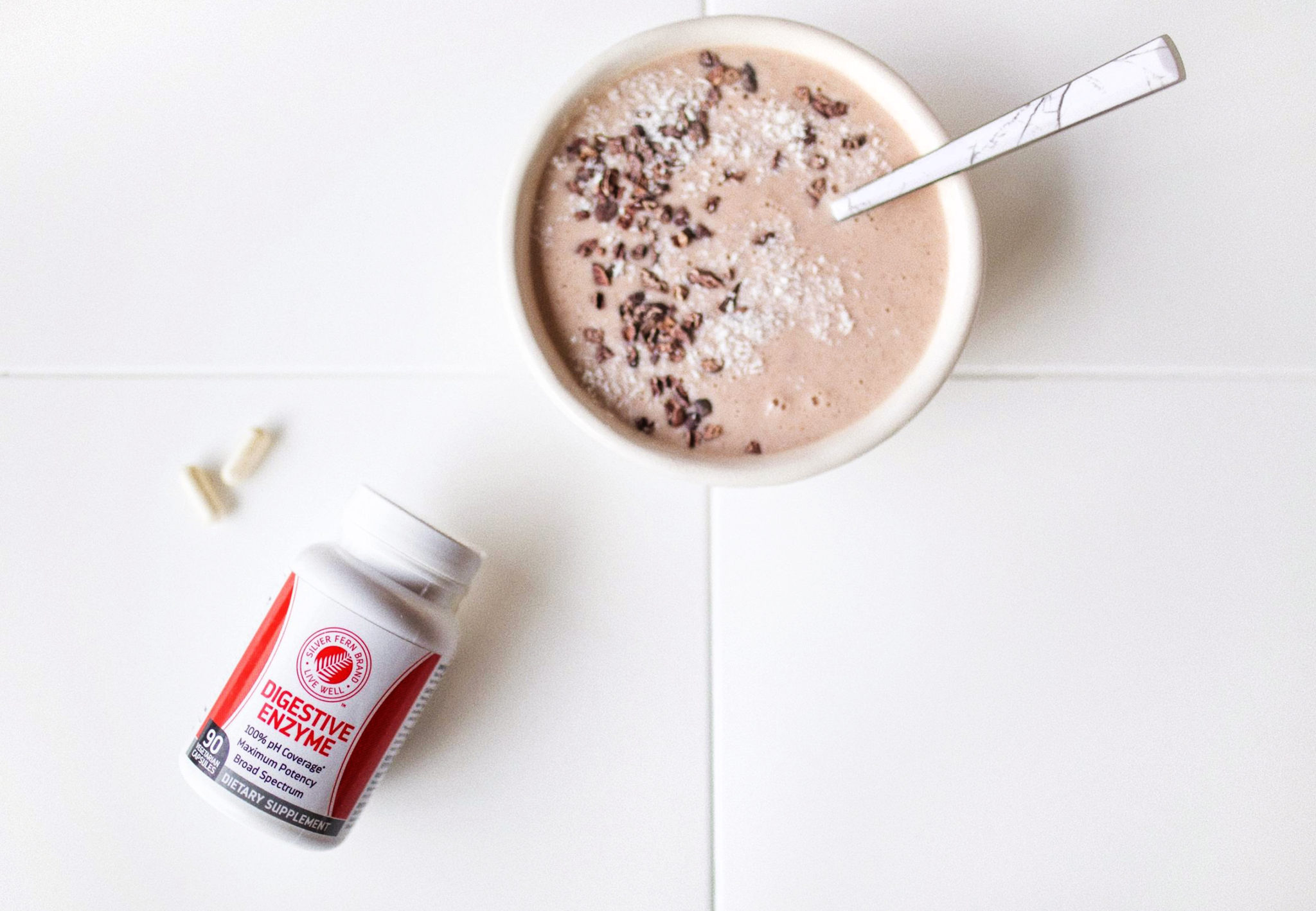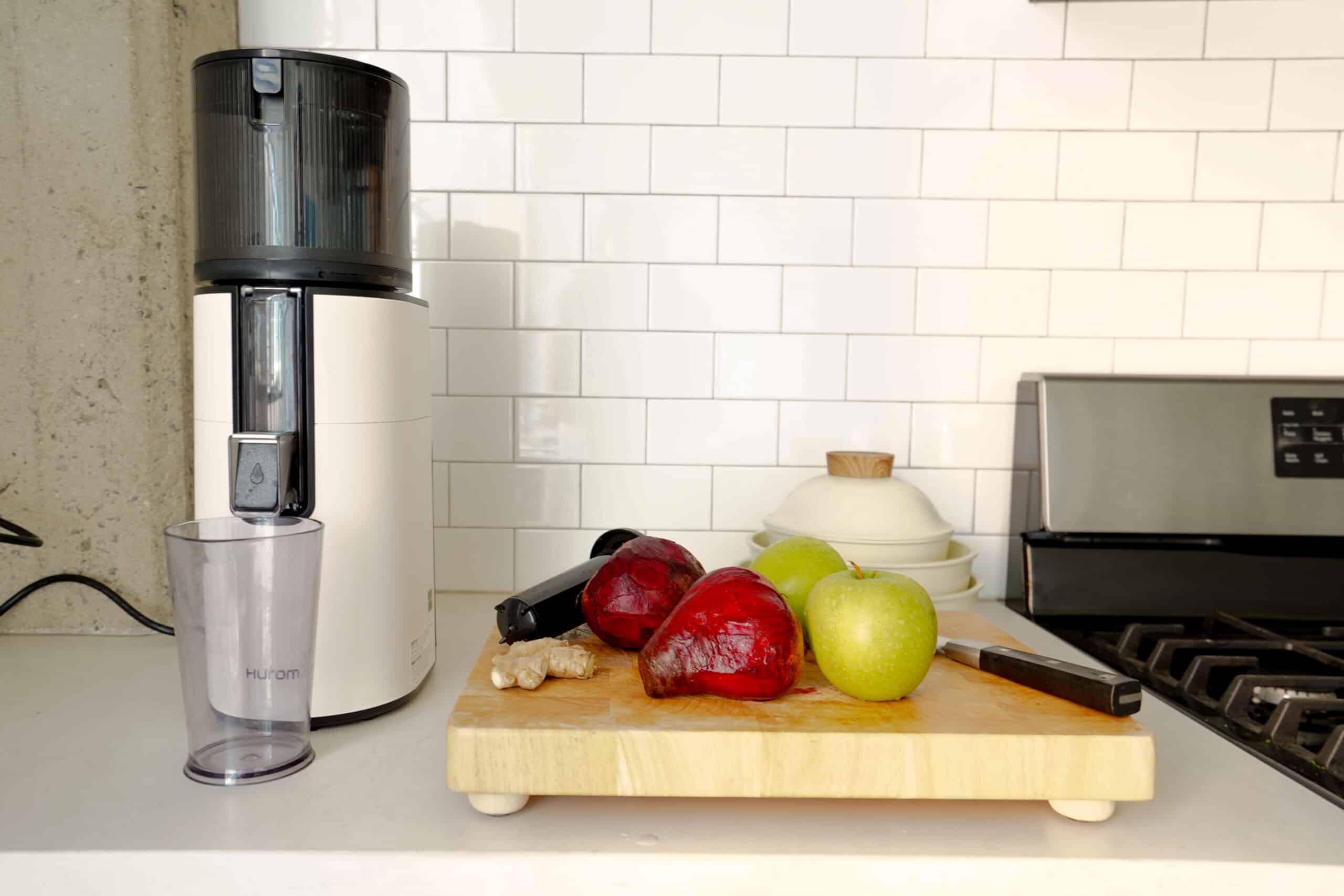I haven’t talked too much about my own personal health but from time to time when you see me discussing probiotics or gut health in general, it is because I know firsthand the importance of having a healthy gut. I have an autoimmune disease called Ulcerative Colitis, which is basically chronic inflammation in the large intestine. This can lead to really painful cramping, nausea, bloating, and blood, in times where my disease is not under control. While there is no one size fits all cure to all gut issues, I do believe, from my own personal experience, that there are specific foods and supplements you can take to help alleviate common digestive woes. That’s why I take probiotics, eat anti-inflammatory spices and food, and also take digestive enzymes.
This is not to say that digestive enzymes are only to be used if you have chronic inflammation like me, but it is to share that digestive enzymes are key to my gut health, as someone who has a chronic condition. So, in my opinion, it will be beneficial for anyone that has any varying degree of gut abnormalities. And, by the way, digestive enzymes are also different than probiotics, but that’s a whole ‘nother topic we can dive into in another post! I can’t stress how important digestive enzymes are and how much better they make me feel. So what’s the deal-io with them, what are they, why should you take them, and how do they work? Let’s dive into it!
What are digestive enzymes?
An enzyme at its basic definition is a catalyst that allows molecules to change from one form into another. So, a digestive enzyme enables food to be broken down into a more digestible form, so that our bodies can absorb nutrients, produce energy, and function at its optimal zone.
Why do you need digestive enzymes?
I think the ‘why’ is always super important, especially with any kind of supplement. Granted, I am not a medical professional so you’ll always want to consult with your doctor any time you introduce anything new into your body, but the science behind why you need digestive enzymes is because as our enzyme production drops in our late 20s, our digestion is then replaced with bloating and discomfort. Even if certain foods you’ve tolerated for years never gave you issues, now because the production has slowed down of these enzymes, you may experience some discomfort. I’ve developed so many “intolerances” to foods I used to eat as a child and this helps explain it!
There are two factors that you should look at when looking at enzymes:
Potency: The higher the potency, the more efficient the enzyme is to break down food for digestion. With enzymes it’s important to note that you don’t really need to look at the mg unit because that doesn’t mean anything. You could still have a really high mg dosage enzyme but low potency.
Spectrum: The enzyme product needs to span the whole 20-foot length of your intestines because our intestines have a varied pH balance throughout. The Silverfern enzyme blend functions in all pH regions of your small intestines and ensures improved digestion throughout your entire digestive tract.
When do you need to take digestive enzymes?
Digestive enzymes can be taken prior to any meal. I personally take them right before I know I am eating out or eating a food that is not within my normal routine. I don’t know how my body will react to new foods so it’s always better to be safe and have your digestive tract covered 🙂

This post was sponsored by Silverfern Brand but 100% of the content and opinions are my own!

























show comments